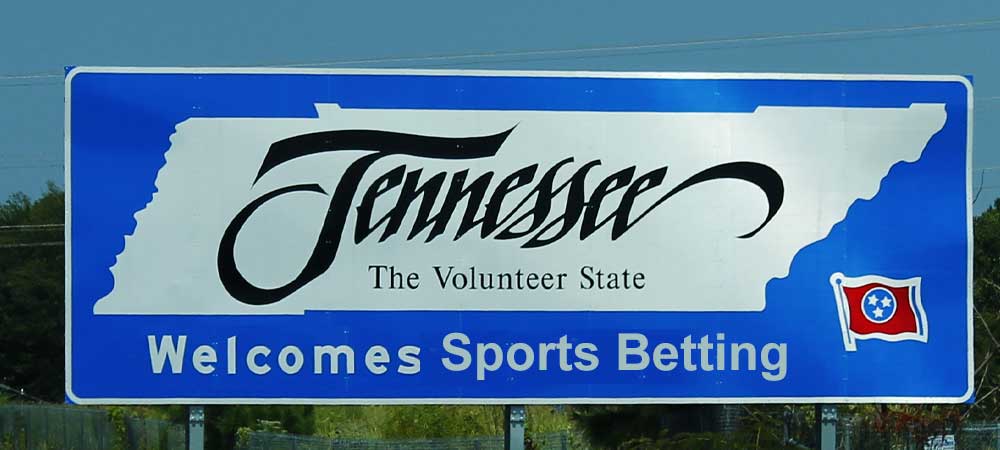- SB 16/HB 1 has passed both chambers of the TN legislature and heads to the governor’s desk.
- Gov. Bill Lee (R) will not veto nor sign the bill, allowing it to become law within 10 days.
- The legislation would legalize statewide online betting and kiosk-based retail betting stations.
NASHVILLE, Tenn. – Tennessee Gov. Bill Lee (R) is taking a page out of West Virginia’s (sports)book, as sports wagering bill SB 16 (aka HB 1) – passed by the state legislature on Tuesday – will be allowed to become law without his signature.
Unlike the conflict of interest cited by West Virginia Gov. Jim Justice (who owns The Greenbrier, a major beneficiary of legal sports betting), Lee’s abstention is based on his political and social beliefs about sports betting in general.
Lee’s press secretary, Laine Arnold, clarified the former’s position in no uncertain terms.
“The governor has said he does not believe that the expansion of gambling is best, but he recognizes that many in the legislature found this to be an issue they want to explore further. He plans to let this become law without his signature.”
Unlike most states, Tennessee’s legislation is veto-proof with a simple majority (i.e. 51 percent) of the vote in each chamber. As Lee did not have a meaningful veto in his arsenal, his decision to let the law take effect sans signature is a symbolic gesture to the anti-gambling constituents among his base.
That said, by most states’ standards, the support for legal sports betting in Tennessee hasn’t been overwhelming. In the majority of the country, the legislation would not have been veto-proof.
After the House passed HB 1 by a vote of 58-37 (61 percent) last Wednesday, the vote went to the Senate, where the bill – as SB 16 – was amended and passed by a vote of 19-12 (61 percent).
The House then reviewed and passed this amended version of the legislation by a vote of 51-40 (56 percent).
The bill now heads to the governor’s desk, where it will sit for 10 days (excepting Sundays) before it automatically becomes law. Per this schedule, Tennessee sports betting should become formally legal on Saturday, May 11.
Nevertheless, the bill has a built-in buffer, pegging July 1 as the first official day for legal Tennessee sports wagering.
It will likely take several weeks or months for the various online and kiosk-based books to get up and running, though all the pieces should be in place in time for the start of the lucrative NFL betting season in September.
What The Tennessee Sports Betting Market Will Look Like
There are a few key points of the impending law that will be of particular import to resident Tennessee bettors. First and foremost, SB 16/HB 1 only allows for online sports betting.
Brick-and-mortar betting at retail locations was amended out of the proposal. However, this is not a significant concern, as there are no physical commercial or tribal casinos in the state.
The legislation does allow for the operation of remote kiosks, which are effectively terminals for online wagering and which can be deployed at a number of authorized, third-party retail storefronts.
Under the terms of SB 16/HB 1, licensees will pay the newly-formed Tennessee Gaming Commission. This will be a nine-member body within the larger Tennessee Lottery Commission.
The commission will handle industry oversight and administrate license approvals and other critical management functions related to sports betting in Tennessee.
The initial license fee for any sportsbook operator to provide its services in the state is a reasonable $50,000. However, the annual license renewal fees are comparatively high, requiring a yearly payment to the state of $750,000. Further, the state will levy a 20% “privilege tax” on gross sportsbook revenue.
The proposal seems to allow for statewide mobile sports betting, and the legal age to participate is set at 21 years old, both for online and kiosk-based wagering.
Bill sponsors Sen. Steven Dickerson (R-Nashville) and Rep. Rick Staples (D-Knoxville) estimate that in a mature market, SB 16/HB 1 will generate annual revenues for the state in excess of $50 million.
This more or less jibes with the American Gaming Association/Oxford Economics 2017 report. This research estimates that Tennessee, with widespread betting availability and a high tax rate, would produce $41 million in revenue by 2023 (see page 65).

